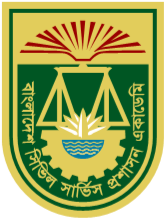Assessing the Role of International Organizations in Restraining States from War and Promoting Global Peace and Security
DOI:
https://doi.org/10.56379/bjam.v37i2.93Keywords:
International Organizations, Global peace and security, transnational policy, global conflictAbstract
Although International Organisations (IOs) undeniably play a vital role in fostering dialogue and establishing a more peaceful global community, they are frequently perceived as extensions of their dominant member states, promoting decisions that may lack impartiality and inclusivity. Such criticisms are underscored by events such as the ongoing Israel-Palestine conflict, where the UN’s resolutions often reflect political complexities rather than tangible progress towards peace. Similarly, NATO’s role in addressing the crises in Syria and Yemen has been criticised for aligning with the strategic priorities of dominant member states rather than achieving comprehensive conflict resolution. The neutrality and efficacy of IOs have come under scrutiny, particularly concerning the United Nations (UN), which is frequently criticised for its slow response times and susceptibility to the political agendas of influential member states. Moreover, while NATO's involvement in the India-Pakistan conflict has demonstrated its geopolitical complexities, the EU's inability to mediate and address prolonged crises in its immediate neighbourhood further underscores its limitations. Thus, IOs are often accused of serving as tools for powerful nations to further their strategic objectives, exert influence, and maintain control over weaker states. This study explores the nuanced dynamics of their operations and influence by critically examining the roles of three IOs as a reference: the UN, NATO, and the European Union (EU) and highlight the dual nature of IOs as both essential entities in the pursuit of international stability and security and as organisations constrained by structural and political limitations.
Downloads
Published
Issue
Section
Categories
License
Copyright (c) 2025 Sabrina Mustafa, Forkan Elahi

This work is licensed under a Creative Commons Attribution 4.0 International License.


